What is the current economic situation in Venezuela?
For almost three months I had not written any other publication on the political and economic situation of Venezuela, in fact, I did not intend to do so until, coincidentally, due to the new monetary reconversion that the government plans to implement, I found a really not very interesting article, since it exposed the same problems and situations as the rest of the articles, however, I could find something different in it and if it caught my attention.
I refer to a set of images that capture part of the essence of living in an economic scenario that suffers from hyperinflation.
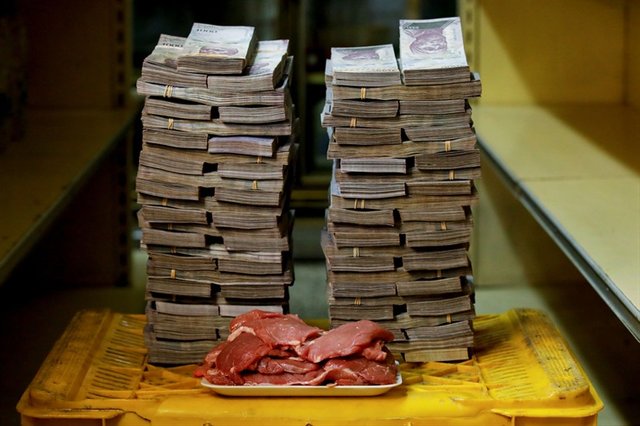
One kilogram of beef: 9,500,000 bolivars (US$ 1.45)
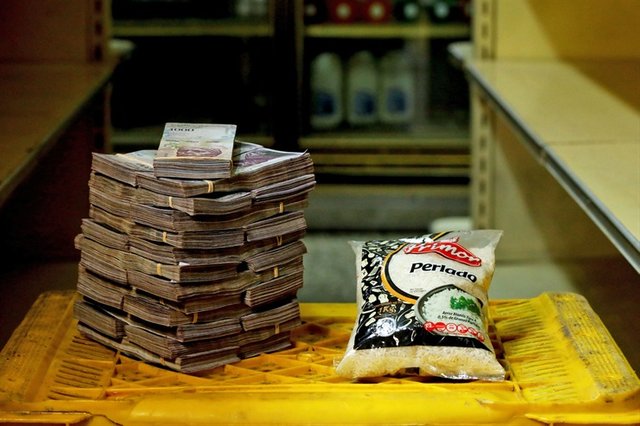
One kilogram of rice: 2,500,000 bolivars (US$ 0.38)
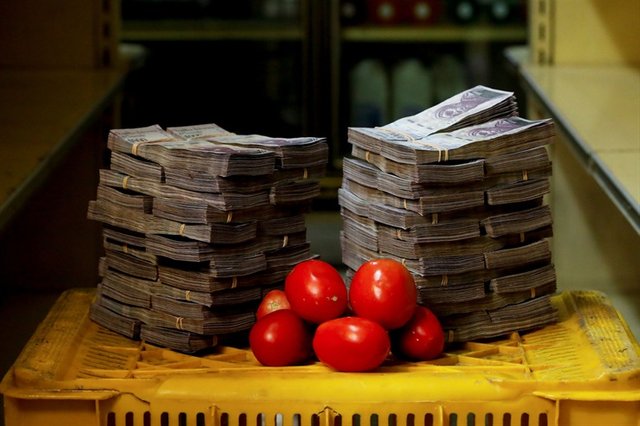
One kilogram of tomatoes: 5,000,000 bolivars (US$0.76)
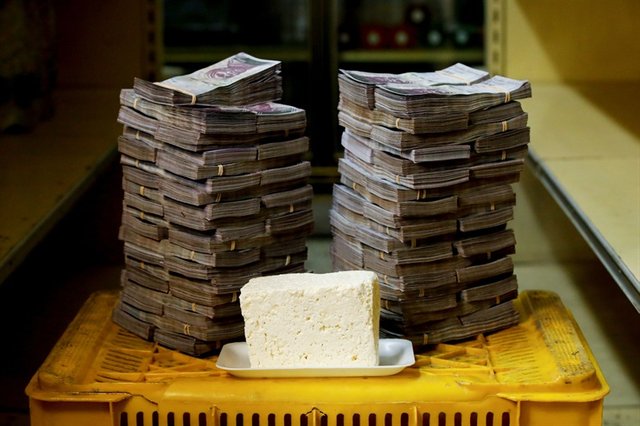
One kilogram of cheese: 7,500,000 bolivars (US$ 1.14)
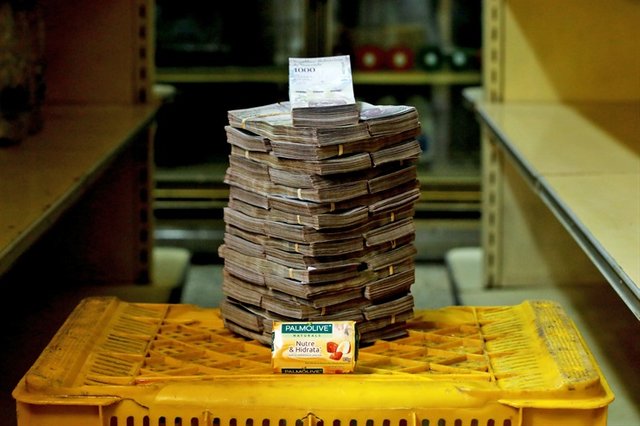
A soap bar: 3,500,000 bolivars (US$ 0.53)
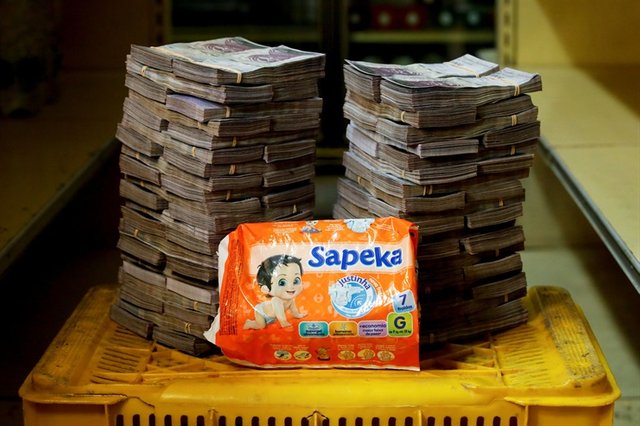
A pack of diapers: 8,000,000 bolivars (US$ 1.22)
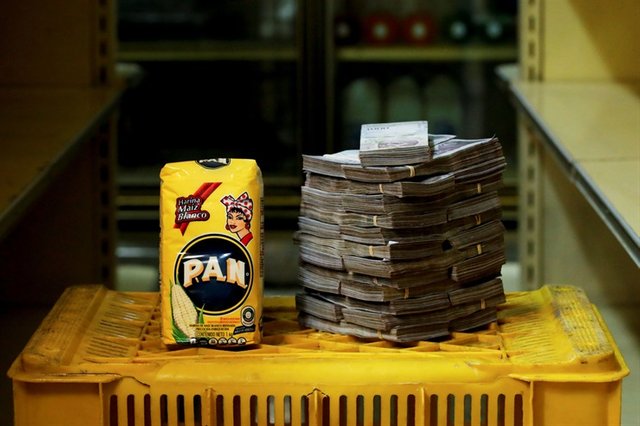
One kilogram of cornmeal: 2,500,000 bolivars (US$ 0.38)
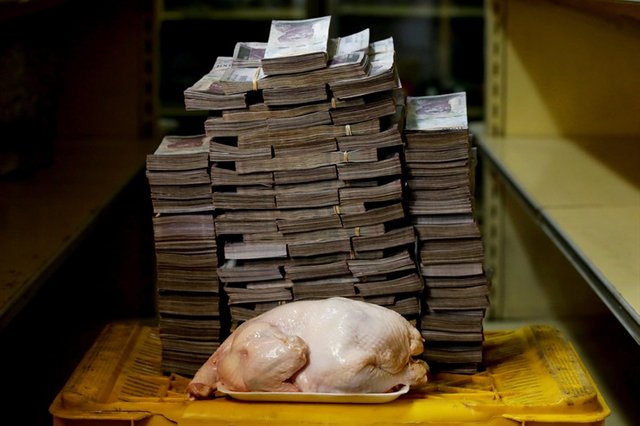
A 2.4 kilograms chicken: 14,600,000 bolivars (US$ 2.22)
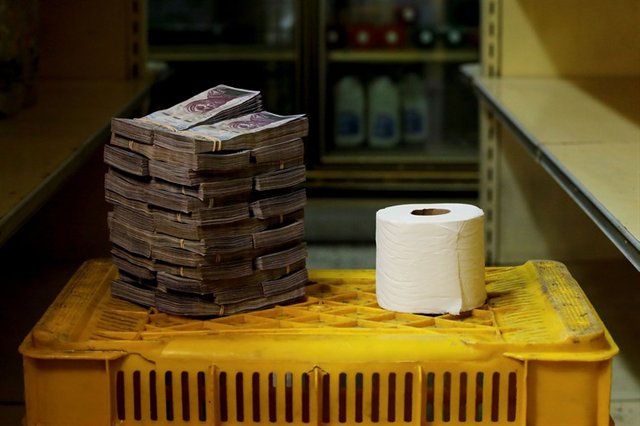
A roll of toilet paper: 2,600,000 bolivars (US$ 0.40)
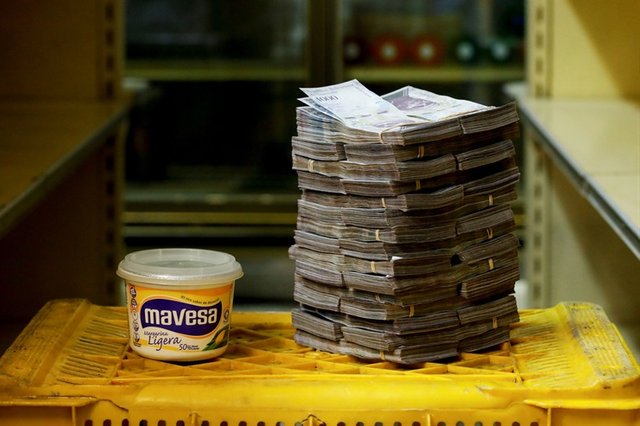
500 grams of margarine: 3,000,000 bolivars (US$ 0.46)
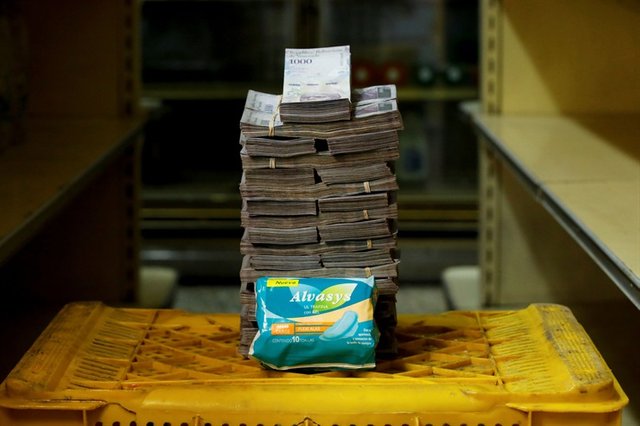
A pack of sanitary napkins: 3,500,000 bolivars (US$ 0.53)
As you can see, a lot of money is needed to buy very few goods and services. When I see that this amount of cash becomes so common, it is inevitable to think about the Weimar Republic, and the hardships that those citizens had to undergo at that time, submerged in misery and humiliation, and that now the Venezuelans have to live, with its great differences, a similar inflationary situation.
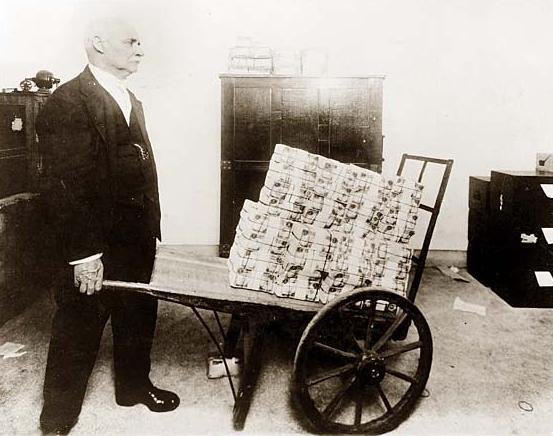
But unlike in Germany, in Venezuela there are no children playing with blocks of bills or men transporting large amounts of cash through a cart. As is evident, the circumstances are very different, electronic banking has allowed this to happen. In Venezuela, cash is scarce, very few people actually buy something with cash.
Related posts
Socialism in Venezuela: Why is there a shortage of money if there is inflation?
Socialism in Venezuela: The Price System.
Socialism in Venezuela: Why does the increase in the minimum wage no longer affect inflation?
Norway & Venezuela: Two different models based on the same resource
How Venezuela met Socialism? brief political history
Socialism in Venezuela: Is there an economic war in Venezuela?
Socialism in Venezuela: Why is gasoline so cheap? 9510 gallons of gasoline for $ 1 !!!
This problem ends up complicating the situation much more, because since there is inflation, but cash money is scarce, it acquires a different value and much higher than electronic money, which ends up sharpening the economic situation even more and boosting inflation.
In fact, here below I leave the link of a proposal I made to the SmartCash community to solve this problem at the local level, but which unfortunately never came to fruition due to various logistical factors.
What is the economic recovery plan according to the government?
For now, the Venezuelan government will try to make a new monetary reconversion, through which it will reduce five digits to the currency, changing the denomination of "Bolívar Fuerte" (strongs bolivars) to "Bolívar Soberano" (sovereign bolivars), with which 1,000,000 bolivars will go through to become 10 bolivars.
Likewise, the government has announced that the new currency will have a type of exchange backed by the phantasmagorical cryptocurrency it has created; the Petro, which is in turn backed by the price of an oil barrel, but paid in bolivars. That is, a system similar to that between the Steem and the SBD. In the same way that the SBD is backed by 1 dollar, but that dollar is paid in Steem and not in dollars directly, the Petro is backed by the price of an oil barrel, but paid in bolivars and not in dollars directly.
The government has also said that it will raise the minimum wage from 5,196,000 bolivars to 180,000,000 bolivars, that is, the equivalent of 30 dollars, promising to all the employers of the country that the State will pay the difference between the current salaries and the new salaries for a period of 90 days, and if that were not enough, it will also deliver directly to every Venezuelan who has in the "Carnet de la Patria"(which can be translated as "patriot card", a card with no apparent reason that the government wants everyone to use), which is currently 10 million people, 60,000,000 bolivars, that is, the equivalent of 10 dollars, in addition to raising the VAT (Value Added Tax) from 12% to 16%.
It will also implement a program to increase the price of gasoline to the equivalent in the international market, restricting the subsidy of gasoline to all those who don't have a "Carnet de la Patria" or who are not registered in the new census of public transporters. All this with the intention of rationing the amount of subsidized gasoline consumed by the population.
Finally, the government has said that the new exchange rate between the bolivar and the dollar will be based on a new fluctuating official rate, which is presumed to assume the price dictated on the current black or unofficial market.
What is my opinion about it?
Simple, if there is no increase in production, if it is not invested in industrial capacity, no matter how many tricks and systems are implemented, everything will be a failure. The only way to get out of the crisis is by producing. Increase salaries, increase the cost of public services, and increase taxes, all it will do is change the dynamics a bit, so that it can help to reduce the deficit a little, reducing the need to use the Central Bank, and therefore decelerating inflation slightly, but unless goods and services are produced, the problem will remain there and inflation can not be stopped.

Curated for #informationwar (by @commonlaw)
Our purpose is to encourage posts discussing Information War, Propaganda, Disinformation and other false narratives. We currently have over 8,000 Steem Power and 20+ people following the curation trail to support our mission.
Join our discord and chat with 200+ fellow Informationwar Activists.
Join our brand new reddit! and start sharing your Steemit posts directly to The_IW!
Connect with fellow Informationwar writers in our Roll Call! InformationWar - Contributing Writers/Supporters: Roll Call Pt 11
Ways you can help the @informationwar
Wow, what a striking set of images.
All this tinkering by the government does not address the actual problem - socialism. Especially socialism without a free enough capitalist market to support it.
Socialism drags everything down, as it always has. Only enough capitalism can keep everything afloat.
Yes, in fact, I think that the new policies that will be implemented from tomorrow are the economic capitulation of socialism, they are not carrying out a liberation the market or anything like that, but they will reduce the control a bit, just like that they would decrease the deficit, which may be good, although personally I think it will not work, since they are very incompetent and will not be able to take the theory to practice convincingly.
It is similar to 1928 Germany.
Regarding the hyperinflationary issue, yes, but it has its differences, technological advances such as electronic banking have created a different situation with respect to cash. In addition, Germany came to that problem as a result of losing a war, in Venezuela the problem was generated by purely internal factors.
absolutely..